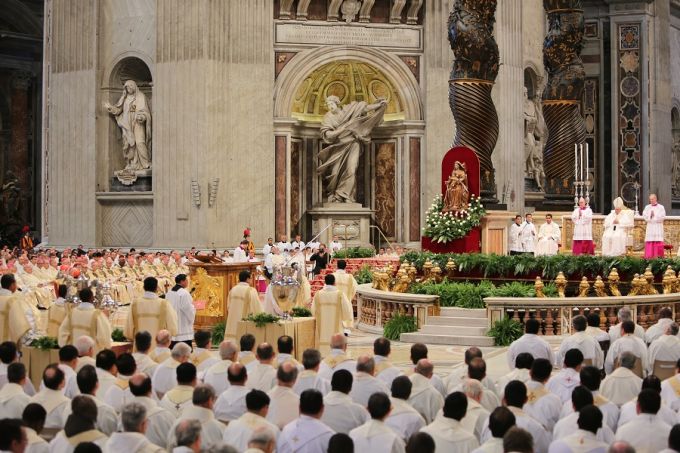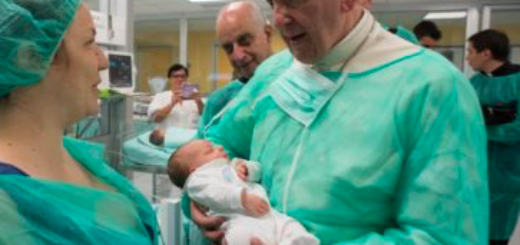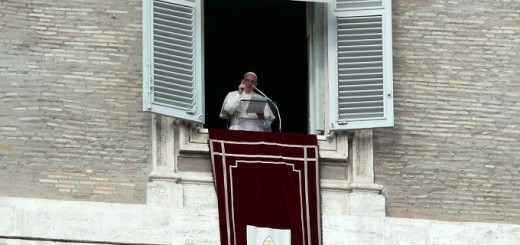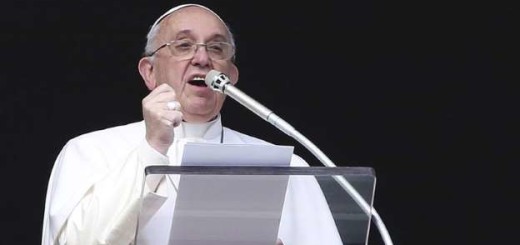Don’t flirt with spiritual worldliness, Pope cautions priests

by Elise Harris. .- During Holy Thursday’s Chrism Mass Pope Francis warned priests not to fall into a tiredness that leads to worldliness, and said that only resting in the Lord will enable them to continue when they feel worn out.
“There is also weariness of ourselves. This may be the most dangerous weariness of all,” the Pope said during his April 2 Chrism Mass in St. Peter’s Basilica.
“I like to call this kind of weariness ‘flirting with spiritual worldliness,’” he said, explaining that when priests are alone, “we realize how many areas of our life are steeped in this worldliness, so much so that we may feel that it can never be completely washed away.”
This is a dangerous tiredness to all into because while the other forms come from being exposed and going out to meet people, this tiredness is more “self-referential.”
“It is dissatisfaction with oneself, but not the dissatisfaction of someone who directly confronts himself and serenely acknowledges his sinfulness and his need for God’s mercy,” the Pope noted, explaining that this tiredness is like the “wanting yet not wanting” of those who gave up everything but still “yearn for the fleshpots of Egypt.”
“This can be a dangerous kind of weariness,” he said, and cautioned that “only love gives true rest. What is not loved becomes tiresome, and in time, brings about a harmful weariness.”
Pope Francis made his remarks on the priesthood during the morning's Chrism Mass, which takes place in the Catholic Church each year on Holy Thursday and involves the blessing of oils used for the sacraments of Confirmation, Holy Orders and the Anointing of the Sick.
During the Mass all priests, bishops and cardinals present renewed the promises they made on the day of their ordination.
While Francis dedicated last year’s Chrism Mass to the joy of the priesthood and the priest’s call to anoint others with the “oil of gladness” they received at their ordination, this year he focused on how this joyful anointing can at times become tiring.
“The tiredness of priests! Do you know how often I think about this weariness which all of you experience? I think about it and I pray about it, often, especially when I am tired myself,” the Pope said.
He revealed that he prays for all priests as they minister to their flocks, including many who serve “in lonely and dangerous places,” and said that the tiredness of a priest “is like incense which silently rises up to heaven. Our weariness goes straight to the heart of the Father.”
Francis cautioned that when a priest feels “weighed down” by his pastoral responsibilities, the temptation can arise to try to rest “however we please,” and explained that rest itself is a gift from God which is often hard to do.
“For us priests, what happens in the lives of our people is not like a news bulletin: we know our people, we sense what is going on in their hearts,” he said, noting that priests, who share their people’s suffering, can get “exhausted, broken into a thousand pieces, moved and even consumed by the people.”
A priest’s ability to rest can say a lot about a his own capacity to trust and to realize that he himself is a sheep, Francis said, and asked the cardinals, bishops and priests present if they knew what it meant to rest.
“Do I know how to rest by accepting the love, gratitude and affection which I receive from God’s faithful people? Or, once my pastoral work is done, do I seek more refined relaxations, not those of the poor but those provided by a consumerist society?”
Francis also questioned whether the Holy Spirit was a truly a source of rest for them, or if his is merely considered the one who keeps them busy.
He encouraged priests to spend time in prayer, to seek wise advice from other priests, and to rest from “the demands I make on myself, from my self-seeking and from my self-absorption.”
Pope Francis then outlined more positive forms of weariness that can come up in the life of a priest, noting that one is what he called “the weariness of the crowd.”
To be among the people can be exhausting, Francis noted, and pointed to how Jesus himself was scarcely left with time to eat during his earthly ministry.
“But the Lord never tired of being with people. On the contrary, he seemed renewed by their presence. This weariness in the midst of activity is a grace on which all priests can draw. And how beautiful it is!”
This tiredness, he said, is “a good and healthy” and is a sign of the priest “who wears the smell of the sheep…but also smiles the smile of a father rejoicing in his children or grandchildren. It has nothing to do with those who wear expensive cologne and who look at others from afar and from above.”
If Jesus himself is the one truly guiding the flock, then priests “cannot be shepherds who are glum, plaintive or, even worse, bored. The smell of the sheep and the smile of a father,” Francis said.
The Pope then referred to “the weariness of enemies,” which he described as the tiredness that can come from fighting the devil and his minions, who work tirelessly to silence the word of God or distort it.
The devil, he said, “is far more astute than we are, and he is able to demolish in a moment what it took us years of patience to build up.”
Francis encouraged priests to never let their guard down, and to thwart the attacks of the devil without pulling up the good wheat “or presuming to protect like supermen what the Lord alone can protect.”
Pope Francis closed his reflections by drawing attention to how Jesus washed his disciples’ feet the night of the Last Supper.
Jesus, he said, “gets involved with us, becomes personally responsible for removing every stain, all that grimy, worldly smog which clings to us from the journey we make in his name,” and washes off the dirt our feet have accumulated by following him.
“Like battle wounds, the Lord kisses them and washes away the grime of our labors,” he said, explaining that to do this for others is something holy.
Francis closed his reflections by encouraging priests to go out to the peripheries to anoint others, and prayed that they “learn how to be weary, but weary in the best of ways!”

















